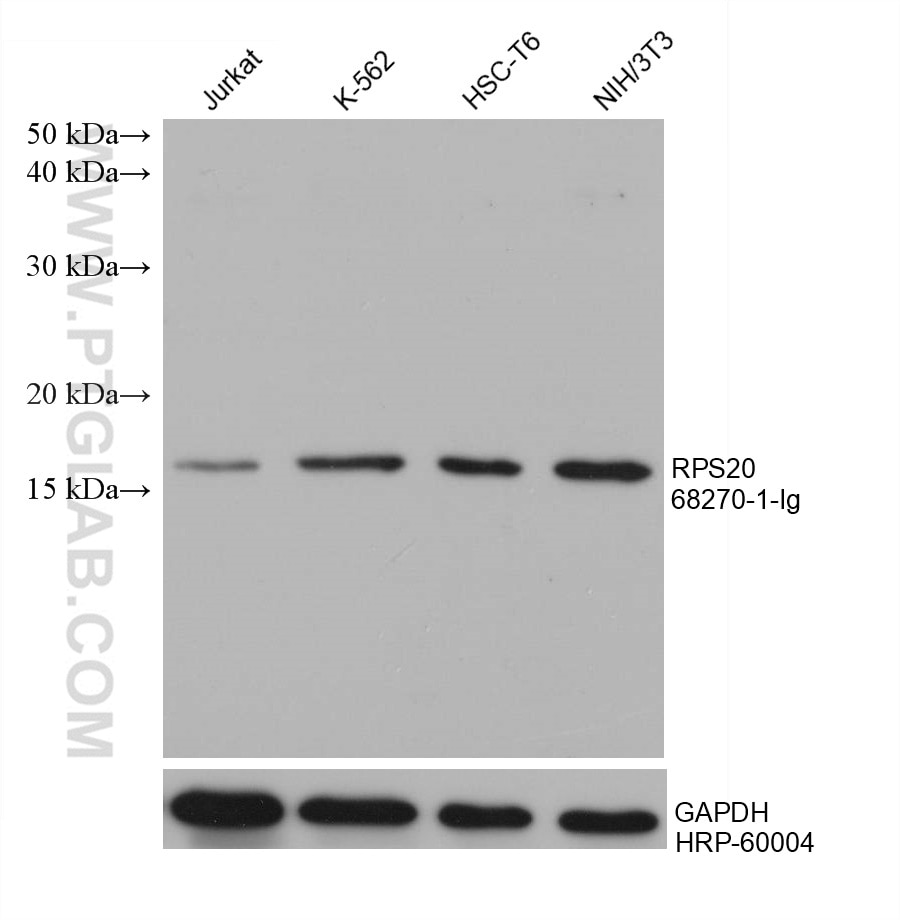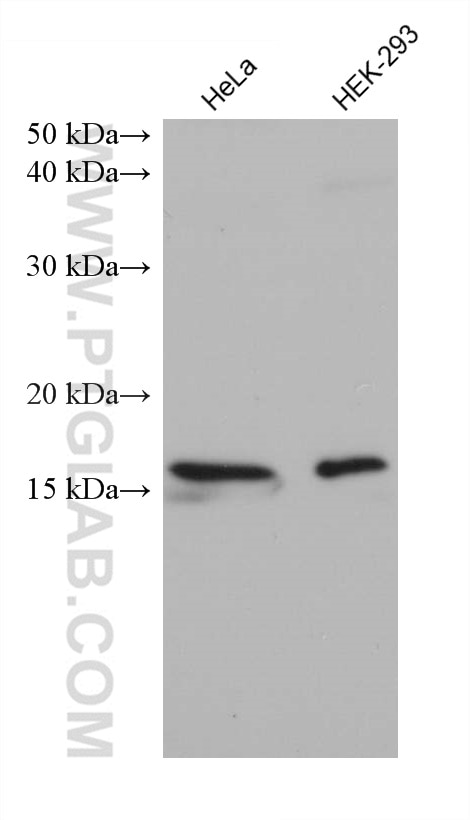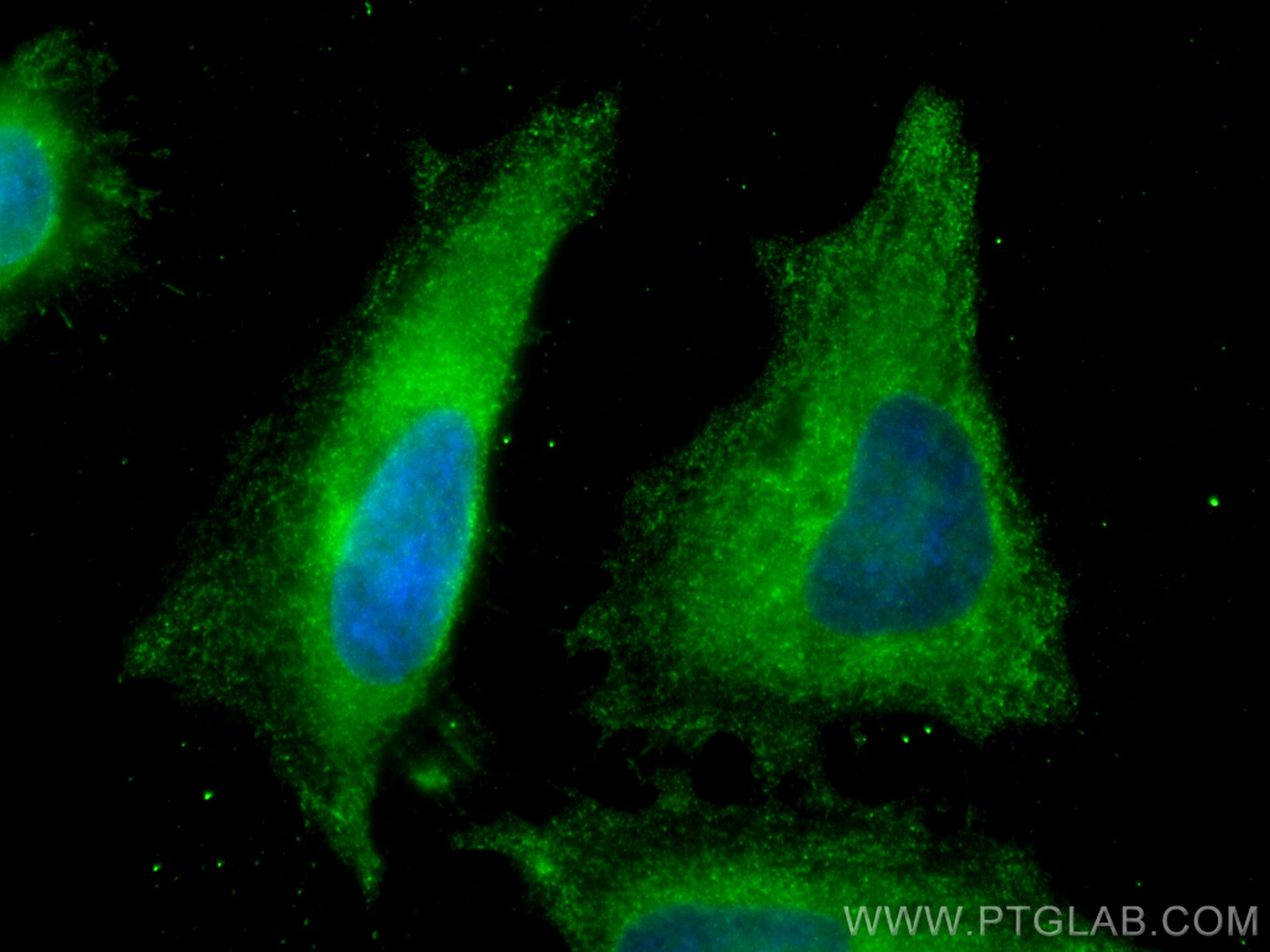RPS20 Monoklonaler Antikörper
RPS20 Monoklonal Antikörper für IF, WB, ELISA
Wirt / Isotyp
Maus / IgG1
Getestete Reaktivität
human, Maus, Ratte
Anwendung
WB, IF, ELISA
Konjugation
Unkonjugiert
CloneNo.
3E9B4
Kat-Nr. : 68270-1-Ig
Synonyme
Galerie der Validierungsdaten
Geprüfte Anwendungen
| Erfolgreiche Detektion in WB | Jurkat-Zellen, HEK-293-Zellen, HeLa-Zellen, K-562-Zellen, NIH/3T3-Zellen |
| Erfolgreiche Detektion in IF | HeLa-Zellen |
Empfohlene Verdünnung
| Anwendung | Verdünnung |
|---|---|
| Western Blot (WB) | WB : 1:5000-1:50000 |
| Immunfluoreszenz (IF) | IF : 1:200-1:800 |
| It is recommended that this reagent should be titrated in each testing system to obtain optimal results. | |
| Sample-dependent, check data in validation data gallery | |
Produktinformation
68270-1-Ig bindet in WB, IF, ELISA RPS20 und zeigt Reaktivität mit human, Maus, Ratten
| Getestete Reaktivität | human, Maus, Ratte |
| Wirt / Isotyp | Maus / IgG1 |
| Klonalität | Monoklonal |
| Typ | Antikörper |
| Immunogen | RPS20 fusion protein Ag8275 |
| Vollständiger Name | ribosomal protein S20 |
| Berechnetes Molekulargewicht | 13 kDa |
| Beobachtetes Molekulargewicht | 16 kDa |
| GenBank-Zugangsnummer | BC007507 |
| Gene symbol | RPS20 |
| Gene ID (NCBI) | 6224 |
| Konjugation | Unkonjugiert |
| Form | Liquid |
| Reinigungsmethode | Protein-G-Reinigung |
| Lagerungspuffer | PBS mit 0.02% Natriumazid und 50% Glycerin pH 7.3. |
| Lagerungsbedingungen | Bei -20°C lagern. Nach dem Versand ein Jahr lang stabil Aliquotieren ist bei -20oC Lagerung nicht notwendig. 20ul Größen enthalten 0,1% BSA. |
Hintergrundinformationen
Ribosomes, the organelles that catalyze protein synthesis, consist of a small 40S subunit and a large 60S subunit. Together these subunits are composed of 4 RNA species and approximately 80 structurally distinct proteins. RPS20 is a component of the 40S subunit. The protein belongs to the S10P family of ribosomal proteins. It is located in the cytoplasm.
Protokolle
| Produktspezifische Protokolle | |
|---|---|
| WB protocol for RPS20 antibody 68270-1-Ig | Protokoll herunterladen |
| IF protocol for RPS20 antibody 68270-1-Ig | Protokoll herunterladen |
| Standard-Protokolle | |
|---|---|
| Klicken Sie hier, um unsere Standardprotokolle anzuzeigen |




